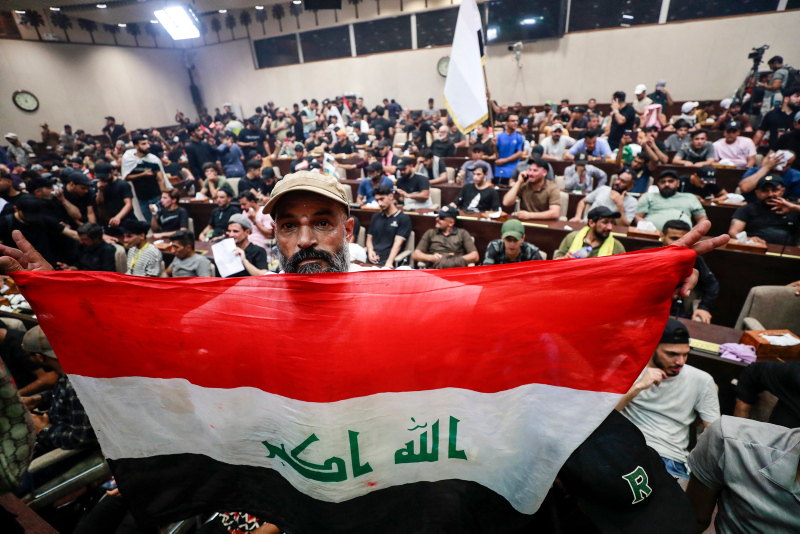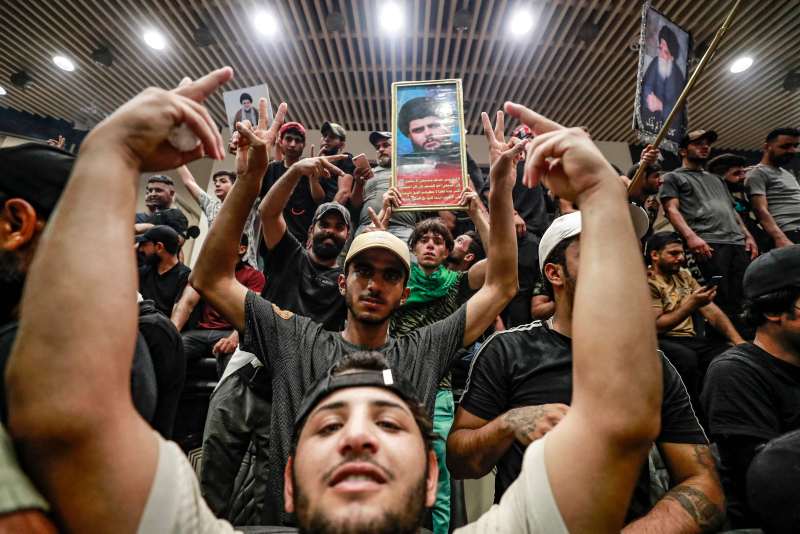Loyalists of Iraq's influential cleric Moqtada al-Sadr on Saturday broke into the parliament building in Baghdad for the second time this week amid months of political deadlock in the country.
They also announced an open sit-in inside the Iraqi parliament building, according to official media.
The protesters were able to enter the highly fortified Green Zone, which houses the parliament, government buildings and foreign embassies, although security forces fired tear gas to prevent their entry, witnesses said.
Protesters inside the parliament chanted slogans demanding reforms and the rejection of corruption, Iraqi TV station Alsumaria reported.
The Iraqi Health Ministry said 60 injured people had been taken to hospitals in Baghdad due to the unrest. All 60 were demonstrators, Iraq's state news agency INA reported.

Earlier Saturday, thousands of al-Sadr's followers converged on Tahrir Square, a hub of previous protests, in Baghdad carrying the firebrand Shiite Muslim cleric's photos, and approached the Green Zone.
On Wednesday, a large number of protesters had stormed the Green Zone and parliament in rejection of a pro-Iran political alliance's nomination of ex-government minister Mohammed Shia al-Sudani for the prime minister post.
The protesters later left in response to a call from al-Sadr.

A bloc linked to al-Sadr secured 73 seats in the 329-strong parliament in legislative elections held in October last year.
While the Sadrist bloc increased its seats in the October polls compared to the previous parliament, pro-Iranian groups suffered significant losses.
But, last month, the Sadrist bloc quit amid a political stalemate over forming a new government in the country.
By custom, Iraq's parliamentary speaker is a Sunni Muslim, the prime minister is a Shiite and the president a Kurd.
Many Iraqis have little faith in political players as oil-rich Iraq has been struggling with economic and political crises for years.